Originally published in Outside Online February 1, 2021
We came up with a list of the people, places, and trends that matter now, from the rise of outdoor reservation systems and new mountain-biking meccas to where to thaw out this winter.
Just because we haven’t been traveling doesn’t mean our favorite destinations weren’t busy creating new adventures, thinking more sustainably, and capitalizing on the pandemic-driven outdoor boom. There’s a lot to be excited about this year. If you don’t know where to start, we’ve got you. Here’s everything (give or take) in the adventure travel world worth knowing about this year.
1. Sustainability Is the Future

We all know that some of the planet’s most beautiful places are being loved to death. COVID-19’s forced pause on tourism has been a wake-up call about just how significant our environmental impact is. Here are three ways the travel industry plans to dial it back going forward.
Reservations Only: Before the pandemic, the thought of calling ahead to visit a national park or an outdoor mecca seemed preposterous. But reservation systems formerly in place at popular sites like Yosemite and Rocky Mountain have shown that a little planning isn’t all that painful, especially when it means fewer people on the trails. One of Colorado’s most frequented spots—the Maroon Bells, near Aspen—required advance bookings last summer to reduce the impact of its 300,000 average annual visitors.
Climate Positive: Being merely carbon neutral is no longer good enough; many travel companies are going a step further and offsetting more than they help produce. Australia’s Intrepid Travel, which has been carbon neutral since 2010, has pledged to cover 125 percent of its emissions in the year ahead, and Canada’s Bella Coola Heli Sports will be offsetting 110 percent.
Voluntourism 2.0: Hawaii’s two-week travel quarantine, put in place last March, all but halted tourism for six months. To shift gears toward more responsible travel when the state reopened in mid-October, the tourism department launched Malama Hawaii. (Malama means “to care for.”) The initiative encourages volunteerism like native-tree planting and beach cleanup by offering free nights at partner hotels. The hope is that giving back imparts a fresh perspective for travelers on the islands’ rich culture. —Jen Murphy
2. E-Bikes Come to National Parks

In October, the Department of the Interior finalized orders to allow e-bikes everywhere in the National Park System that traditional bikes are permitted. The decision is controversial among purists, but it could get more people out of their cars and into these classic landscapes. —Graham Averill
3. New Base Camps to Check In To

The Green O, Montana
The Resort at Paws Up in Greenough, Montana, pretty much invented glamping, and it plans to expand in June. The Green O, an adults-only retreat located on Paws Up’s 37,000 acres, will have 12 treehouses and cabins (from $2,100). —Erin Riley
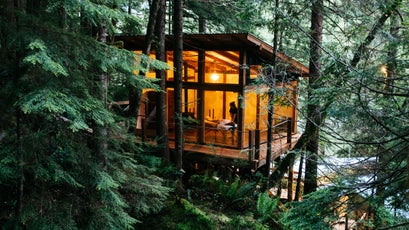
Nimmo Bay Resort, British Columbia
When the U.S.-Canadian border reopens, British Columbia will be at the top of many Americans’ list. For a remote getaway, our in-house travel experts Sandy and Chip Cunningham recommend a stay at newly renovated Nimmo Bay Resort, a 90-minute plane ride from Vancouver. Six overwater and three forest cabins are surrounded by 50,000 square miles of Great Bear Rainforest, where you can kayak with orcas, lounge on secluded beaches, and paddleboard a glacial fjord (from $1,495; book with Outside GO). —E.R.
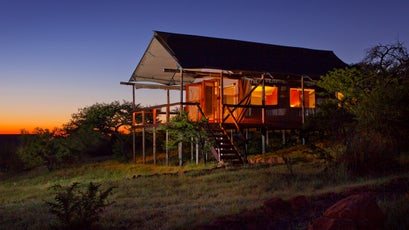
Camp Aramoni, Illinois
With Camp Aramoni opening this August, 90 miles southwest of Chicago, the state will see its first luxury camping resort (from $450). Set on 96 acres along the Vermilion River, 11 safari-style tents will make ideal base camps for fishing, hiking, and exploring nearby Starved Rock State Park. —E.R.
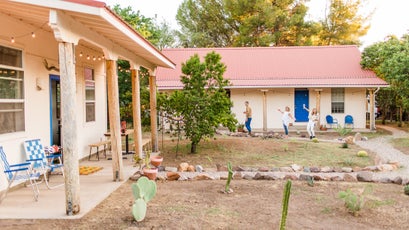
The Gravel House, Patagonia, Arizona
Eighteen miles north of the Mexican border, this eight-person, two-casita compound is a dream escape for gravel riders in search of winter warmth and routes in the San Rafael Valley. There’s a yoga deck, a sauna, and the option of healthy meals with a southwestern kick (from $117). —Stephanie Pearson
4. Mines Get an Adventure Overhaul
Who knew mountain biking was worth its weight in gold? Trail systems in former mining towns are revitalizating those communities. Redhead Mountain Bike Park in Chisholm, Minnesota, officially opens in June with 23 miles of world-class trails built around former iron-ore pits. In the Appalachian foothills of southeastern Ohio, 26 of the 88 miles of the Baileys Trail System, ringed by abandoned mines, are ready for action. And in the tiny town of Redstone, Colorado, Walmart heirs Tom and Sam Walton have restored 4.5 miles of beginner-friendly trails, opening this spring. —J.M.
WFH Went 24/7: As a result, digital nomadism increased 49 percent in the U.S. last year, according to MBO Partners.
5. Road Trips by Electric Car Are Easier than Ever

As of March 2020, there were approximately 25,000 public vehicle-charging stations in the U.S., and that number will soon spike. Last year, Florida’s governor announced $8.6 million in funding to build EV stations along state highways, and starting this year, General Motors and EVgo, the nation’s largest public fast-charging network, are set to add 700 fast chargers in states including California, Texas, Florida, and Illinois. By the end of the year, Volkswagen’s Electrify America initiative plans to install 800 outposts, in addition to its just-completed EV-charging route from Washington, D.C., to Los Angeles. —Alex Temblador
6. Adventure Goes Members Only
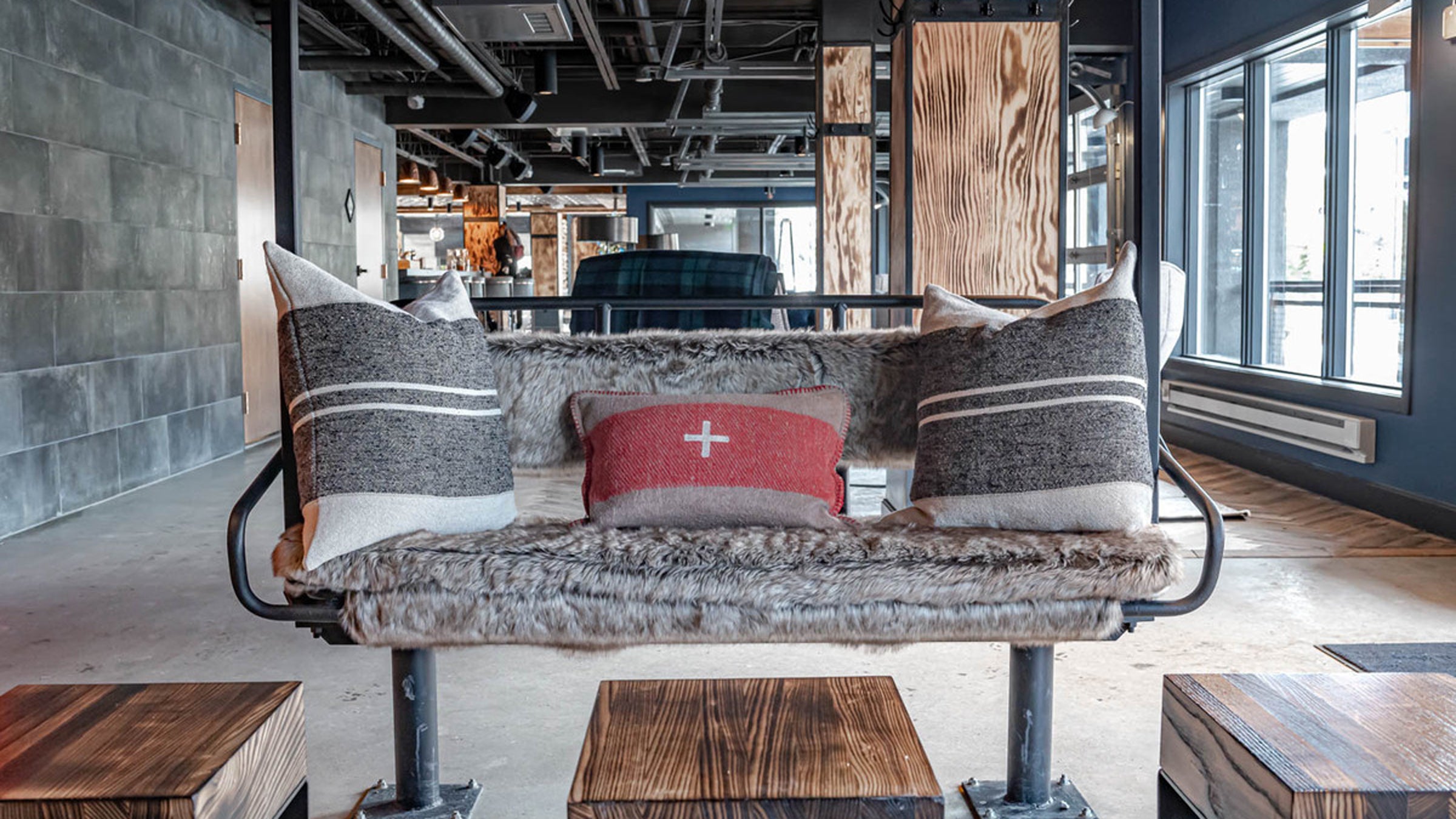
A new crop of membership-based clubs make it easier for travelers to connect and explore.
Work Hard, Play Hard: If your idea of life balance is scoring first tracks, squeezing in a Zoom call, and then banging out a HIIT class before networking over fireside beers, you’ll fit right in at Gravity Haus (from $480 a year). The hotel and membership club has locations in Breckenridge and Vail Village—and, come February, in Winter Park, with future properties outside Colorado. Members also get access to coworking and fitness facilities, and discounts on avalanche courses and hut trips.
Expert Advice: In August, adventure-media company Roam launched Roam Academy, an education platform that shares the expertise of its founding members, who include climber Sasha DiGiulian, filmmaker and athlete Jimmy Chin, and other outdoor legends. Members can also tap into a library of original films and receive discounts on Roam Adventures, small-group trips Roam plans to roll out in early 2021 (from $149 a year).
Private Pods: Wary of commercial flights but itching for more than a road trip? Manifest, a chapter-based travel club, provides custom excursions in the U.S. for groups of eight people or fewer, including private plane service (from $2,500 a year and $3,500 a trip). Chapters are capped at 175 members and currently exist in Colorado, California, and Arizona. Outfitter MT Sobek curates some of the trips, among them rafting the Middle Fork of the Salmon River and camping in the High Sierra. —J.M.
Tents Filled Twitter: The platform saw a 93 percent rise in the use of the camping emoji from March to September.
7. Mountain-Biking Meccas Are on the Rise
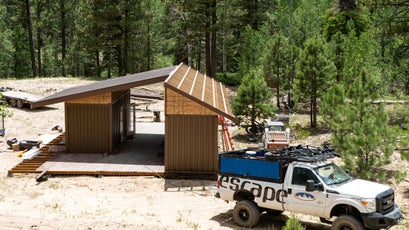
Trail builders and advocates were busy during the pandemic.
The Palisade Plunge, Colorado: With 32 miles of purpose-built singletrack, the Plunge, which opens this spring, begins at the 10,719-foot Mesa Top Trailhead on the Grand Mesa and drops through 6,000 feet of backcountry, making its way to the Colorado River in downtown Palisade.
Ride Kanuga, North Carolina: This downhill park, built by two-time national champ Neko Mulally, has nine trails that descend 500 vertical feet in a series of jumps, berms, and techy gnar. Trails range from flowy cruisers to steep, feature-heavy lines. There’s no lift or shuttle, but Kanuga is e-bike- and tow-strap-friendly (from $19).
The Great Lake-to-Lake Trail, Michigan: Long-distance riders who’d prefer not to suffer, take note—this new route follows 275 miles of dirt and backcountry roads from Lake Michigan to Lake Huron, passing through more than 30 small towns with hotels and restaurants. Amtrak runs the length of the route, making it possible to self-shuttle.
Aquarius Trail Hut System, Utah: The state gets its first mountain-bike hut-to-hut experience with five repurposed shipping containers along a route that begins on the 11,306-foot peak of Brian Head and ends 190 miles later in the town of Escalante. Each hut accommodates 12 riders and has a grill, an e-bike charging station, and optional beer delivery. Make it a five-night adventure (from $899). —G.A.
8. Rural Destinations Are In

It’s no surprise that travelers have been heading for less touristy locales since the start of the pandemic. Places like Greenville, South Carolina; Fort Walton Beach, Florida; and Boise, Idaho, are among the most popular for long-term stays, according to a recent survey by Airbnb. —A.T.
9. International Travel Has New Rules

According to epidemiologists, traveling abroad won’t be risk-free until there’s widespread distribution of a vaccine. And with vaccinations underway, experts are hopeful that many Americans will be vaccinated by summer. Still, some folks are traveling anyway, so companies are looking for ways to make it safer. In an attempt to create a universal indicator of good health, an app called CommonPass will allow travelers to share their COVID-19 status across borders. Users take a test at a certified lab or site, download it to their mobile device, then complete the destination country’s health declarations.
Perennial spots are also getting creative to keep tourists coming. With a mandatory $40 fee, every traveler to Jamaica will receive on-island health coverage up to $50,000, through a partnership with Global Rescue. This includes case management, field rescue, evacuation, and repatriation for medical emergencies, including COVID-19, and international health coverage of up to $100,000. While existing travel-insurance companies consider how to adapt their plans to the current times, new organizations are springing up in response. Covac Global, which launched in August, will fly travelers home on a private aircraft from anywhere in the world if they test positive for COVID-19 and exhibit at least one symptom (from $995 for 30 days). And in Addis Ababa, Ethiopian Airlines recently completed the first terminal in the world built with biosafety measures, including state-of-the-art thermal scanners, self check-in, and socially distanced gate screening. —S.P.
10. There Are More Ways to Stay Connected
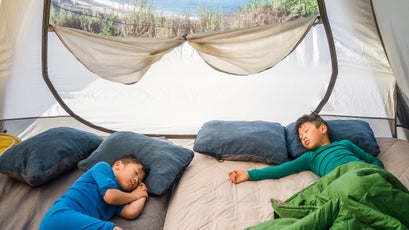
Three new products to help you adventure with friends, find community, and work remotely
WildKind: Hiking, camping, or RV travel with the whole family can be an intimidating prospect. WildKind is stepping in to help parents get outdoors with kids. Sign up for an online membership (from $10 monthly) and get access to a community forum, gear swap meets, and virtual courses, like how to help an infant sleep soundly outdoors.
Milo the Action Communicator: The key to a socially distanced adventure? A superpowered walkie-talkie. Milo keeps groups connected up to a mile apart. There’s no need for Wi-Fi or cellular service—just clip on the palm-size device and communicate by speaking (from $249).
Skyroam: Whether you’ve converted to full-time vanlife or need to work during a camping trip, Skyroam offers Wi-Fi in remote places for up to ten devices, along with features like a built-in camera and a smart assistant. The brand’s new Solis X hotspot provides a year of 4G LTE in more than 130 countries for $249. —A.T.
11. Bikepacking Comes to the Navajo Nation

Jon Yazzie loves bikepacking his ancestral lands in southeast Utah, but he rarely sees other Navajo on bikes in the backcountry. The 46-year-old former mountain-bike racer decided to change that by launching Dzil Ta’ah Adventures, a guiding service with two goals: first, bring sustainable tourism to the Nation through commercial bikepacking trips; and second, use the money from those trips to fund a Navajo youth bikepacking program. “The best way to change the culture is to start with the kids,” Yazzie says. “Bikepacking can enhance their connection with the land and help them experience some of their history.”
Yazzie has been mentoring a small group of Navajo teenagers that will assist with leading the adventures, and he kicked off the youth program last fall with a short trip for younger kids using donated bikes and his own gear. He plans to start running commercial trips this spring (from $950 for one night). —G.A.
12. Travelers Are Heading South

In a survey conducted by the World Travel and Tourism Council, of the 70 percent of Americans and Canadians who intend to travel this year, nearly half named Mexico and the Caribbean as top picks. These hotels make prime adventure base camps.
Itz’ana Resort and Residences, Belize: Diving the world’s second-largest barrier reef, hiking Mayflower Bocawina National Park, and tracking jaguars at Cockscomb Basin Wildlife Sanctuary will occasionally tempt you away from your beachfront loft at this 18-room resort, which opened in late 2019 (from $325).
Lovango Resort and Beach Club, U.S. Virgin Islands: A ten-minute boat ride from St. John, this private island resort will soon have a selection of glamping tents and bungalows to choose from (from $995). For now, book the three-bedroom villa and explore the island’s hikes and pristine coral reef. Or head back to St. John for a visit to Virgin Islands National Park.
One&Only Mandarina, Mexico: There’s adventure just minutes from your treehouse or clifftop room, including fishing and hiking. The resort sits on the beach of the Riviera Nayarit, and its seafood-focused restaurant is helmed by Enrique Olvera, the chef behind Mexico City’s Pujol (from $990). —Heather Greenwood Davis
Everyone’s Gone Fishing: According to the Recreational Boating and Fishing Foundation, there were just over three million more fishing licenses sold from January to August of 2020 than in previous years.
13. The Outdoors Is Mainstream
Large travel companies have taken note of the increased interest in road trips, camping, and hiking. Marriott Bonvoy, the hotel group’s loyalty program, partnered with the National Park Foundation to offer discounted rates at hotels near major parks, and United Airlines introduced outdoor filters on its Map Search function to make it easier to find flights near parks and wilderness areas. —A.T.



